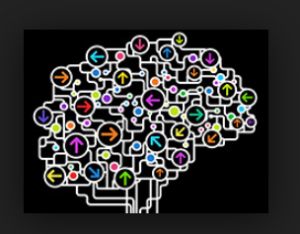Every situation in our life calls for our critical thinking skills. It may be an unfortunate event when our car has somehow broken in traffic. Or when we must choose between studying Psychology or taking a gap year. Anyway, our skills are put to the test to shape critical thinking.

We must carefully analyze all the possibilities and we often must do this in a limited amount of time. We must evaluate all the evidence-based on facts and unbiased analyses.
Some of the situations we encounter call for our skeptical and rational thinking. We must make judgments based on factual evidence.
Critical thinking is not something you are born with, nor is developing by itself. There are some qualities all critical-thinkers have that helped them develop and improve this skill.
Let’s see which the eight qualities great critical thinkers have and how they helped them develop and improve this skill.
Shape critical thinking … Commitment
Carefully analyzing all the evidence and making presumptions based on facts might seem like an easy thing to do. But we often find ourselves in situations where our objectivity is put to test.
It is important to be committed to always supporting our opinions with reasons. With reasons that are evidence-based and well analyzed. It is a commitment self-directed, a commitment you make to yourself to use rational reasons to support your beliefs.
Also, it is useful to be committed to learning new things, to set goals, and to accomplish them. This kind of commitment you make to yourself will allow you to become a learning machine, and this way, to learn something new every week.
Open-mindedness

We will often find ourselves in a debate. It may be a debate with some friends or with your manager. No matter what, you need to critically analyze the situation and the evidence. There will be many possibilities, but, of course, some are better than others.
A critical thinker is an open-minded person. Because he or she understands that we are all humans and we all have different perspectives. You can understand different cultures and traditions, as well as why people behave the way they do.
This also means that you are receptive to new ideas, even if they are different from yours. Thinking critically does not mean that you must stick to your opinion especially if you now have evidence that it is not factually based.
Thinking critically implies a new perspective and your opening to it. The assumption that you do not know everything and that you can learn something from every person you encounter is the key to open-mindedness.
Shape critical thinking … Creativity
Of course, although some problems require simple solutions, there are a lot of problems which can be solved only by finding a creative solution.
Thinking critically means that you must analyze carefully the situation and find innovative solutions. You will often find yourself in a situation where the situation will ask you to be creative. Because all the business and marketing strategies rely heavily on creativity.
You may think that while some of us burst with creativity, some lack this important skill. Well, researchers say that both creativity and non-creativity are learned.
However, this is good news. This means that you can put your creative skills to test and train them to develop also your critical thinking skills.
Now, curiosity can manifest itself as a trait or as a state. If you see a human levitating, curiosity manifests itself as a state because you want to know how levitating is possible and how the human did it.

Curiosity as a trait is represented by the natural and inborn or developed willingness to be in a constant process of learning. You want to learn new things about stars, the economy, or history. The fact is that you improve your critical thinking skills because you are in a constant process of absorbing new information.
Later, you can put all this information into good use and find solutions to problems or come up with new ideas, based on what you have learned previously.
Also, some problems will require more research. So, if you are a curious person it will come in handy to do some research and find new perspectives. You can always use custom essay tools to help you proofread or edit your assignments or the brief descriptions of your ideas.
Objectivity
This is one of the most important traits critical thinkers can have. You need to see the problem based on the facts and evidence, and not on your emotions. You must make judgments and to focus on evaluating scientifically all the evidence.
However, one cannot be completely objective. After all, we are all humans and we are prone to mistakes and wrong judgments. But becoming aware of your cognitive biases and documenting them will surely help you increase your level of objectivity.
Of course, objectivity comes with a lot of exercise and guidance. You may find yourself in a situation where you cannot critically analyze and correct your assignments.
Now, this may seem like wrong or undesirable quality a critical thinker might have. After all, you must always take into consideration facts, data, and evidence to form a rational and unbiased judgment. You may think that there is no place for emotions, compassion, or empathy.
You should keep in mind that, after all, we are all humans. And while you base your decisions or analysis on facts, you must take into consideration other aspects.
Not everything is based only on cold data, but also on the human element. You must be in a constant search for the best decision, taking into consideration the welfare of humans and the facts available.
We live in an era where most of us listen only to reply, not to understand. Active listening along with open-mindedness allows you to analyze contrary opinions. You analyze and at the same time, you open yourself to ideas that contradict your opinions.
Active listening is a skill one must learn to shape his or her critical thinking skills. Active listening also pushes you further into the conversation, excluding the possibility of remaining passive or uninvolved.
And so, you are exposed to different perspectives, different points of view that only broaden your horizon and improve your critical thinking skills.
Shape critical thinking … Willingness
Willingness to learn new things, to hear and analyze other perspectives, or to develop yourself is a key trait for critical thinkers. This willingness can determine you to strive for the best, to try and excel, and to learn from your own mistakes.
This willingness to learn and to adapt to new challenges will make you become more flexible. You will be eager to find out what others think, to debate with them, and to find the best solution to the most complicated problem.
The bottom line
Critical thinking is something innate, but at the same time something you need to constantly improve. Every day we face challenges and situations we have never encountered.
We must approach them with calm, flexibility, and willingness to learn from them.
Every day we meet people we agree or disagree with. Being an active listener and an empathetic and objective one will allow you to develop and improve your critical thinking skills.
By being open to other ideas, cultures, and beliefs, you will shape your way of approaching difficult tasks.
Make no mistake. To change fundamental behaviors you have to change fundamental beliefs. Even if the goals of an initiative are highly technical, to transform an organization you first need to transform the people in it.
The truth is that any transformation isn’t an endpoint, but a journey. To succeed, you have to be in it for the long haul.
Critical thinking is a skill you can develop and improve. This is possible only by being aware of your cognitive biases and keeping them under control.
To master critical thinking skills, you must be in a constant search for information. You must apply standards and analyze the information with a grain of skepticism.
Remember that not everything that flies can be eaten. Base your judgments and opinions on facts and rational and unbiased analysis.
Determining the relevance and being always curious about going further and further will make you master this amazing and helpful skill of critical thinking.
